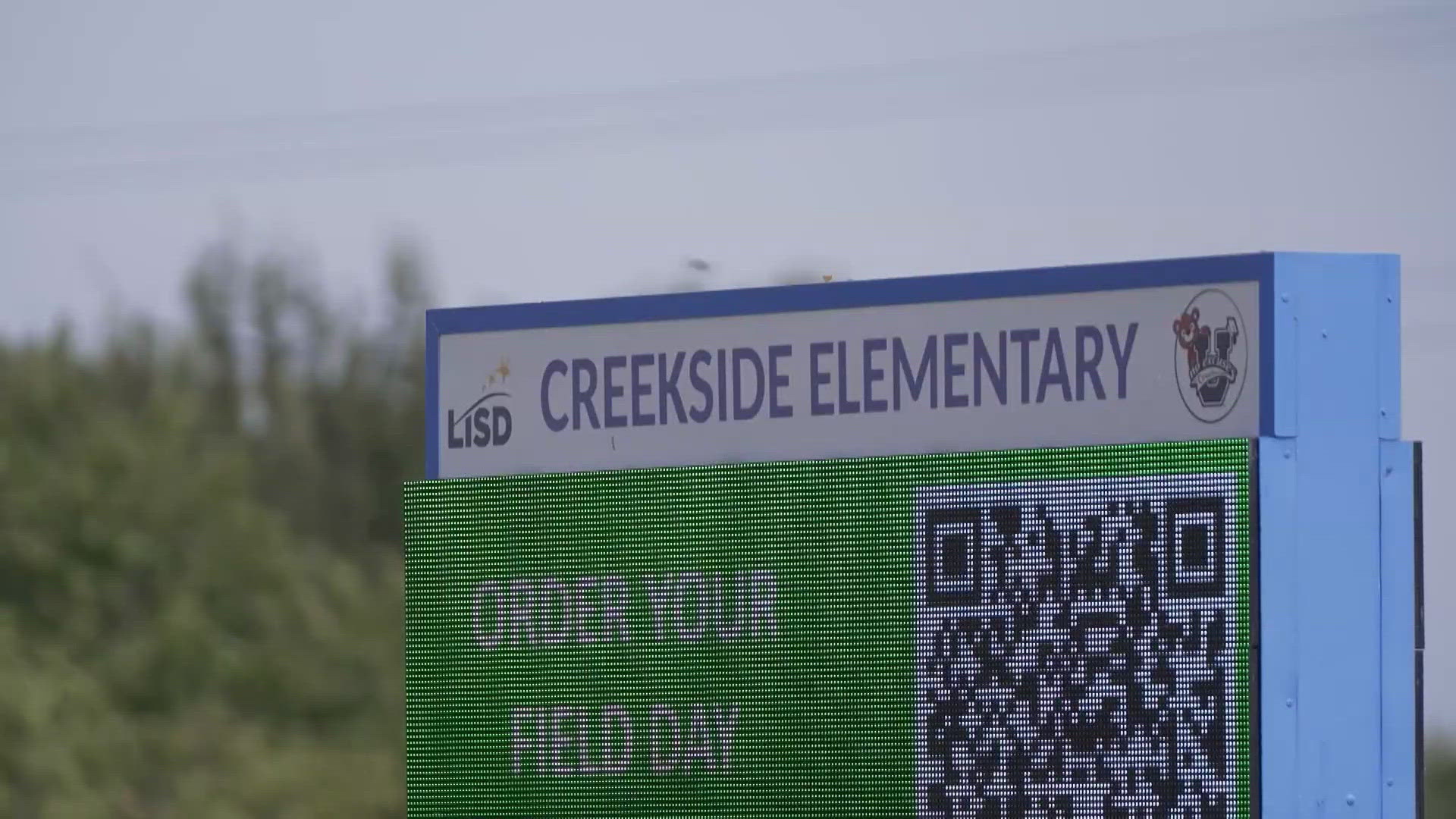AUSTIN, Texas — This story was originally published by our content partners at The Texas Tribune. You can read the original version here.
Texas Education Agency Commissioner Mike Morath on Wednesday said next year lawmakers should ban the use of cellphones in public schools across the state.
Morath’s endorsement of a statewide ban came during his testimony at a Senate Education Committee hearing, where he called the use of cellular devices “extremely harmful” to student progress.
“If it were in my power, I would have already banned them in all schools in the state,” Morath said. “So I would encourage you to consider that as a matter of public policy going forward for our students and our teachers.”
Morath’s comments fall directly in line with a debate taking place in school systems across the country, a contentious subject that doesn’t divide neatly along party lines. The commissioner brought up the topic of cellphones while testifying about student outcomes on national and state exams. On the most recent state exam, only 41% of Texas students demonstrated an adequate understanding of math, a significant cause for concern among lawmakers Wednesday.
People supporting universal cellphone bans note that the devices distract students from learning and are harmful to children’s mental health.
Others worry that banning cellphones prevents young people from exercising personal responsibility and communicating with their parents during emergencies — a growing concern as mass shootings have become more common throughout the United States. During the Uvalde school shooting, where a gunman massacred 19 students and two teachers, children trapped inside the school used phones to call police for help.
Still, some committee lawmakers on Wednesday responded to Morath’s testimony with an openness to the idea.
“Mental health is becoming a bigger and bigger issue,” said Sen. José Menéndez, D-San Antonio. “I like what you said about if we could get rid of the cellphones, you know. I mean, it would help all of us if we could do that. But we can't. I mean … how would it look?”
Morath pointed out that many Texas school districts already ban cellphones in schools, some outright and others only allowing limited use during times like lunch or traveling in between classes.
“Administratively, this is a very doable thing,” he said.
Sen. Donna Campbell, a New Braunfels Republican, said that “while we will make an attempt” to ban cellphones from class during the next legislative session, it is ultimately the responsibility of school districts to take action.
“Everything doesn't take legislation,” said Campbell, who proposed a bill during the last legislative session that sought to prohibit smartphone use during instructional time. “It takes leadership.”
Seventy-two percent of high school teachers across the country say that cellphone distractions are a major problem in their classroom, compared with 33% of middle school teachers and 6% of elementary school teachers, according to Pew Research. Seven states thus far have passed laws that ban or restrict cellphone use in schools, according to the Kaiser Family Foundation.
Legislators in California, which has the most students enrolled in public schools in the country, recently approved a bill requiring school districts to develop a policy restricting the use of cellphones by 2026. But it is unclear whether Texas, where more than 5.5 million children go to school, will soon follow suit.
During The Texas Tribune Festival earlier this month, state Rep. Gina Hinojosa, a Democratic member of the Public Education Committee from Austin, said she doesn’t like the use of cellphones in the classroom, “but it may be that we should leave it to school districts to decide that on their own.”
“I don't know,” Hinojosa said. “We’ll have to hear the debate.”
Rep. Ken King, R-Canadian, who also serves on the Public Education Committee, said most of the schools he represents have already restricted cellphones.
“I don't think we need law for everything,” he said.



